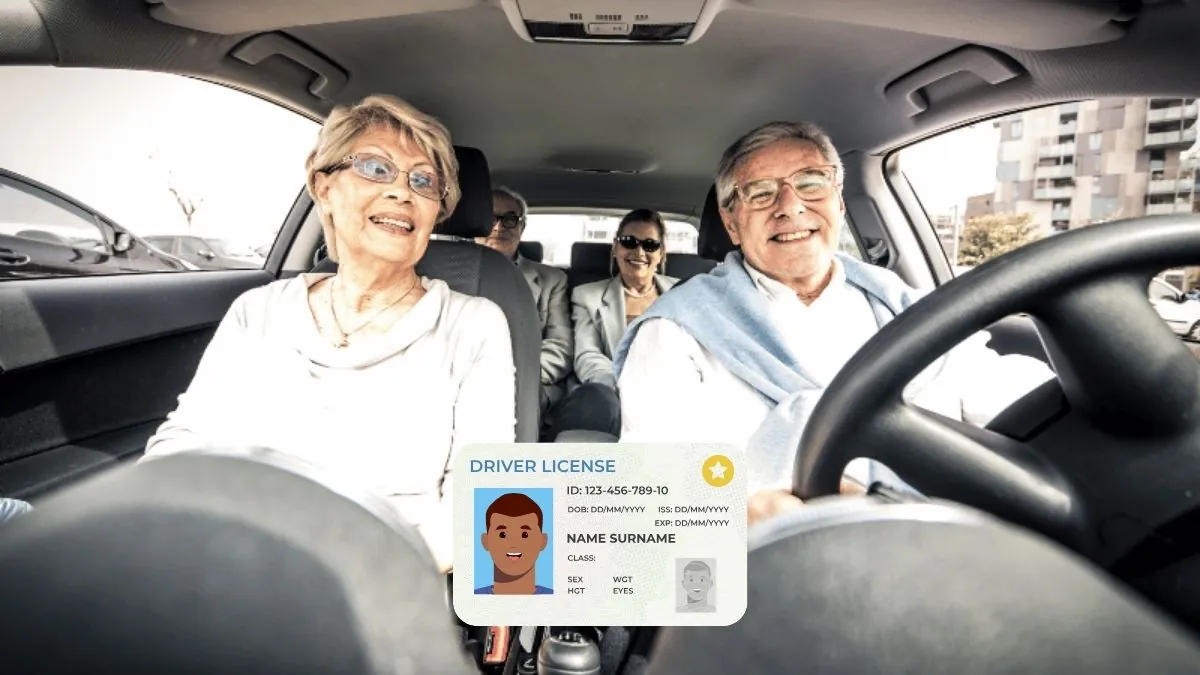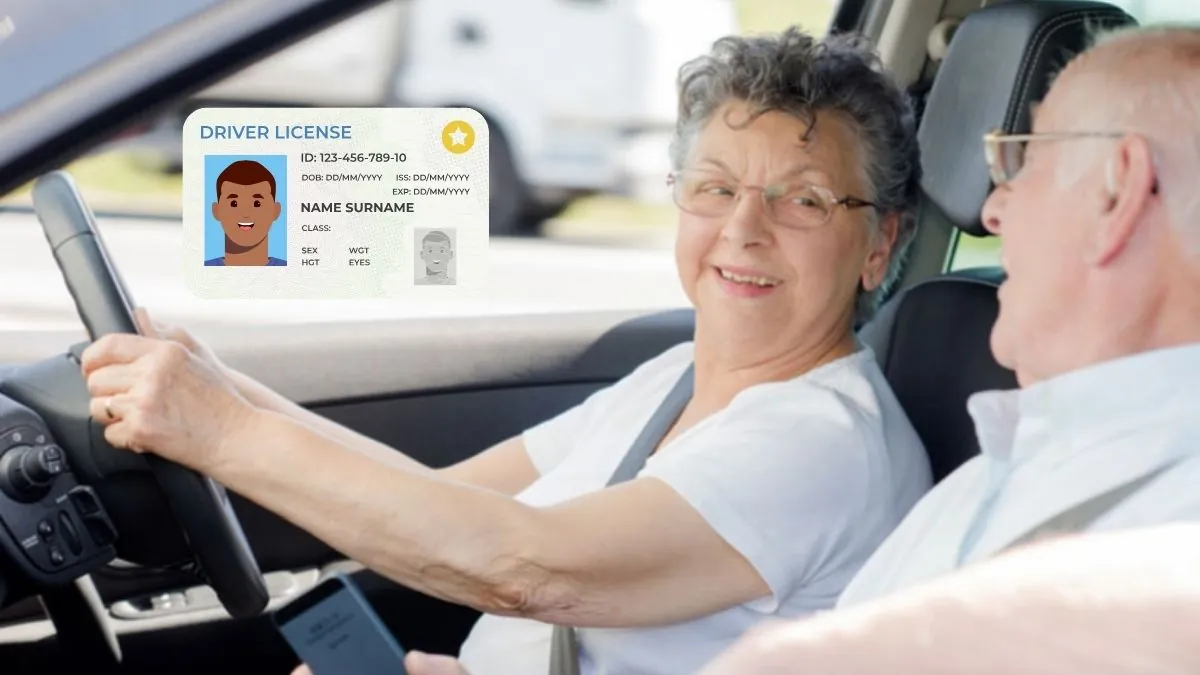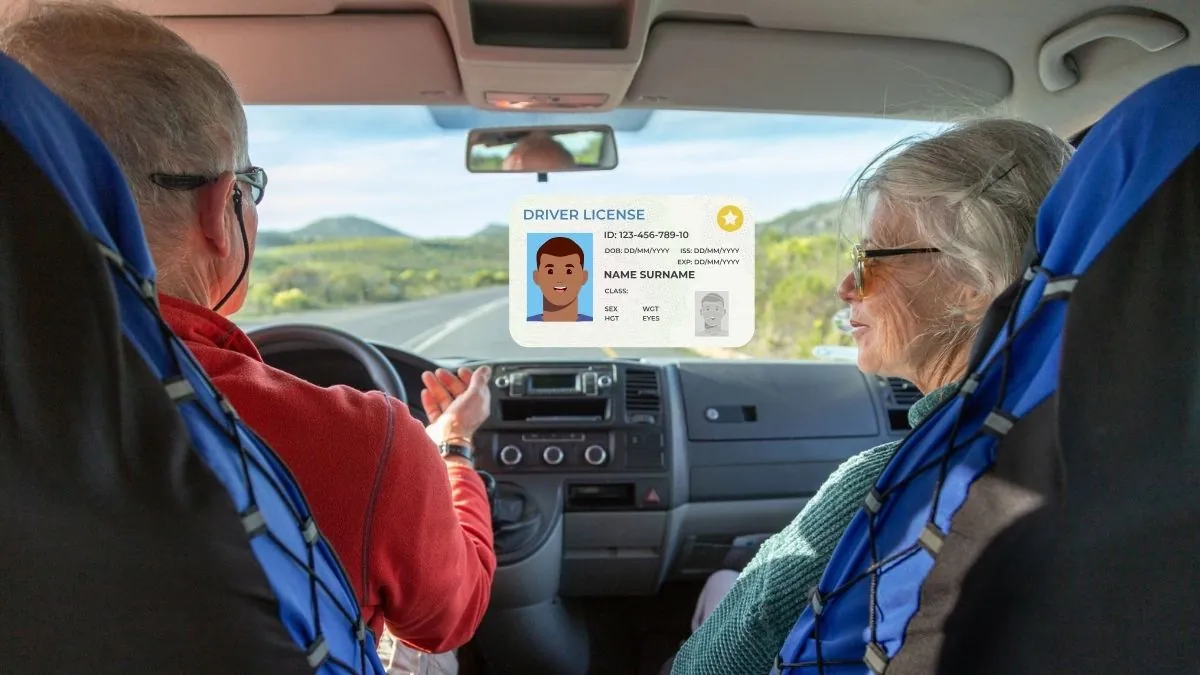Renewing a driver’s license is a crucial process that ensures drivers remain capable of safely operating a vehicle. For seniors, this process can come with additional considerations, particularly in a state like New Jersey, where specific regulations apply to older drivers. This comprehensive guide will explore everything seniors in New Jersey need to know about renewing their driver’s license in 2024. From understanding the renewal process, knowing the latest state regulations, and providing tips for a smooth renewal experience, this article covers it all.
In New Jersey, renewing a driver’s license is a straightforward process for most drivers, but there are specific nuances that seniors should be aware of. The state requires all drivers to renew their licenses every four years, but for seniors, there may be additional steps to ensure they remain safe on the roads.
Overview of Standard License Renewal in New Jersey
The standard license renewal process in New Jersey typically involves submitting identification, passing a vision test, and paying a renewal fee. However, for senior drivers, particularly those aged 70 and older, there might be additional evaluations, such as more frequent vision tests or the requirement to renew in person rather than online.
Key Changes or Updates in 2024 for Seniors
As of 2024, New Jersey has introduced several updates to its license renewal process, particularly focusing on older drivers. One of the most significant changes is the increased emphasis on medical evaluations, especially for those with conditions that could impair driving. The state has also enhanced its online services, allowing more seniors to renew their licenses from the comfort of their homes, provided they meet certain criteria.
Special Provisions or Considerations for Senior Drivers
New Jersey recognizes the unique needs of senior drivers and offers special provisions to accommodate them. For example, seniors may have extended deadlines for renewal if they are temporarily unable to visit a DMV due to health reasons. Additionally, there are programs in place to help seniors understand the renewal process and prepare for any tests they may need to pass.
Eligibility and Requirements for Seniors
Understanding the eligibility criteria and requirements for license renewal is crucial for seniors in New Jersey. Knowing what is expected can help ensure a smooth renewal process.
Age-Specific Requirements for License Renewal
In New Jersey, seniors aged 70 and older may be subject to more frequent renewal requirements. While the standard renewal period is every four years, seniors might be required to renew their licenses more often, depending on their health and driving records. Additionally, the state may require more frequent vision tests or medical evaluations to ensure that senior drivers are still capable of driving safely.
Necessary Documents and Identification
To renew a driver’s license, seniors must present several forms of identification. These typically include a primary ID, such as a birth certificate or passport, and secondary IDs, like utility bills or bank statements that confirm residency. It’s also important to bring the expiring driver’s license as proof of identity.
Vision and Medical Evaluations: What Seniors Should Expect
Vision tests are a key component of the license renewal process for seniors in New Jersey. The state mandates that all drivers pass a vision test to ensure they can see well enough to drive safely. Seniors may also be required to undergo additional medical evaluations, particularly if they have conditions that could impact their ability to drive. These evaluations are designed to ensure that all drivers on New Jersey roads are safe and capable.
Steps to Renewing a Driver’s License in New Jersey
Renewing a driver’s license in New Jersey can be done in several ways, depending on the senior’s eligibility and preference. Understanding these options can help seniors choose the best method for them.
In-Person vs. Online Renewal Options
New Jersey offers both in-person and online renewal options for drivers. However, not all seniors are eligible for online renewal, especially if they need to undergo vision or medical tests. Seniors should check their eligibility before deciding on the method of renewal.
Step-by-Step Guide for In-Person Renewal
For those who need or prefer to renew in person, here’s a step-by-step guide:
- Schedule an Appointment: While walk-ins are accepted at most DMV locations, it’s recommended to schedule an appointment to avoid long wait times.
- Gather Necessary Documents: Bring your current driver’s license, proof of identity, residency, and any required medical documentation.
- Complete the Application: Fill out the renewal application form, which can be done at the DMV or downloaded and completed beforehand.
- Pass Vision and Medical Tests: If required, undergo vision and medical evaluations.
- Pay the Renewal Fee: The renewal fee is typically $24, but it can vary based on the license type and any additional tests required.
- Receive Your New License: After completing the process, you will either receive your new license on the spot or a temporary license until the permanent one arrives by mail.
Online Renewal Process and Eligibility
For seniors eligible for online renewal, the process is simple:
- Visit the NJMVC Website: Go to the New Jersey Motor Vehicle Commission (NJMVC) website.
- Login or Create an Account: Use your driver’s license number and personal information to log in or create an account.
- Complete the Online Application: Follow the prompts to fill out the renewal application.
- Pay the Renewal Fee: Payment can be made online using a credit or debit card.
- Receive Your License by Mail: After processing, your new license will be mailed to you.
Renewal by Mail: Who Qualifies and How It Works
Seniors who are unable to renew in person or online may be eligible to renew by mail. This option is typically available to those with medical conditions that prevent them from visiting a DMV office. To renew by mail, seniors must:
- Request a Mail-In Renewal Form: Contact the NJMVC to request a mail-in renewal form.
- Complete and Return the Form: Fill out the form and mail it back with the required documentation and payment.
- Receive Your License by Mail: Once processed, the new license will be mailed to your home.
Medical and Vision Testing
Medical and vision tests are a crucial part of the renewal process for seniors in New Jersey. These tests ensure that all drivers are fit to operate a vehicle safely.
The Importance of Vision Tests for Senior Drivers
Vision is one of the most important senses for driving. As we age, our vision can deteriorate, which is why New Jersey requires all drivers to pass a vision test when renewing their license. For seniors, this test may be required more frequently, especially if they have a history of vision problems.
Overview of Medical Evaluations and How They Impact Renewal
In addition to vision tests, seniors may also need to undergo a medical evaluation. This is particularly important for those with conditions that could impair their ability to drive, such as diabetes, heart disease, or neurological conditions. These evaluations help determine whether a senior is still capable of driving safely or if any restrictions should be placed on their license.
Preparing for Tests: Tips for Passing Vision and Medical Checks
To prepare for these tests, seniors should ensure they are in good health and have their vision checked regularly by an eye doctor. It’s also important to manage any chronic conditions effectively and provide the DMV with any necessary medical documentation. For those concerned about passing the vision test, getting new glasses or adjusting current prescriptions may help.
Common Challenges and How to Overcome Them
Renewing a driver’s license can be challenging for seniors, especially if they face health or mobility issues. However, there are ways to overcome these challenges.
Difficulties Seniors Might Face During the Renewal Process
Some common challenges include difficulty passing vision or medical tests, mobility issues that make visiting a DMV office challenging, and confusion about the renewal process. Seniors who no longer feel confident driving may also struggle with the decision to renew their license.
Addressing Common Issues Such as Vision Impairment, Health Concerns, and Documentation Challenges
For seniors with vision impairment, it’s important to address these issues with an eye care professional before attempting the renewal process. For those with health concerns, working closely with a doctor to manage these conditions can make the renewal process smoother. Additionally, ensuring all necessary documents are prepared in advance can help avoid delays or complications.
Resources and Assistance Programs for Seniors
New Jersey offers several resources to help seniors with the renewal process. The NJMVC provides information and assistance through their website and customer service centers. Additionally, local senior centers and organizations often offer programs to help seniors prepare for license renewal, including transportation assistance and help with gathering necessary documentation.
Senior-Friendly DMV Locations in New Jersey
Choosing the right DMV location can make the renewal process much easier for seniors. Some locations offer services specifically designed to accommodate older drivers.
Highlighting DMV Offices with Senior-Friendly Services
Several DMV offices in New Jersey are known for being particularly senior-friendly. These locations often offer shorter wait times, accessible facilities, and staff trained to assist seniors. Some of the top locations include the NJMVC offices in Cherry Hill, Trenton, and Wayne, which are equipped to handle the specific needs of older drivers.
Tips for Choosing the Best Location Based on Convenience and Accessibility
When choosing a DMV location, seniors should consider factors such as proximity to their home, availability of parking, and accessibility features like ramps or elevators. It’s also a good idea to visit during off-peak hours to avoid long lines and crowded conditions.
Overview of Services Available at These Locations
In addition to standard license renewal services, many senior-friendly DMV locations offer additional support, such as assistance with completing forms, providing information on renewal requirements, and offering transportation options for those who need help getting to the DMV.
Driving Tips for Seniors
As seniors age, it’s important to adapt driving habits to ensure safety on the road. This section offers tips and resources to help seniors continue driving safely.
Staying Safe on the Road: Essential Driving Tips for Seniors
Some essential tips for senior drivers include:
- Regularly Monitor Your Health: Keep track of your vision, hearing, and reaction times. If you notice any changes, consult a doctor.
- Adjust Your Driving Habits: Avoid driving at night, during rush hour, or in bad weather if you feel less confident during these times.
- Keep Your Vehicle in Good Condition: Ensure your car is well-maintained, with working lights, brakes, and tires.
- Plan Your Routes: Stick to familiar roads and plan your routes in advance to avoid getting lost.
Adapting to Physical Changes: How to Drive Safely as You Age
As we age, physical changes can impact our ability to drive. This might include reduced flexibility, slower reaction times, or difficulty seeing at night. Seniors can adapt by adjusting their seating position, using assistive devices like larger mirrors or seat cushions, and taking breaks during long drives to stay alert.
Resources for Senior Driving Courses and Safety Programs
Several organizations offer driving courses specifically designed for seniors. The AARP, for example, offers a Driver Safety Program that covers the latest driving techniques and tips for adapting to age-related changes. These courses are often available online or in person at community centers throughout New Jersey.
Legal Considerations and What to Do if You Can’t Renew Your License
Renewing a driver’s license on time is crucial to avoid legal issues. However, if a senior can no longer drive, there are other options to consider.
Legal Ramifications of Not Renewing a License on Time
Failing to renew a driver’s license on time can result in fines and penalties. In New Jersey, driving with an expired license is illegal and can lead to a ticket or even the suspension of your driving privileges. Seniors should ensure they renew their license before it expires to avoid these consequences.
What to Do if You Are No Longer Able to Drive
If a senior is no longer able to drive, it’s important to consider alternative transportation options. This might include using public transportation, relying on family or friends for rides, or exploring senior transportation services offered by local organizations. Surrendering a driver’s license can be a difficult decision, but it’s important to prioritize safety.
Alternatives to Driving: Public Transportation and Other Options for Seniors
New Jersey offers a range of transportation options for seniors who no longer drive. NJ Transit provides discounted fares for seniors, and many counties offer senior-specific transportation services, such as dial-a-ride programs or shuttle services to shopping centers, medical appointments, and more. These services can help seniors maintain their independence without needing to drive.
Frequently Asked Questions
Seniors often have many questions about the license renewal process. Here, we address some of the most common concerns.
Addressing Common Concerns and Queries from Seniors Regarding License Renewal
- Can I renew my license online? Some seniors may be eligible for online renewal, depending on their age, health, and driving record.
- Do I need to take a vision test every time I renew my license? Seniors are typically required to pass a vision test with each renewal, especially if renewing in person.
- What if I fail the vision or medical test? If you fail a vision or medical test, you may be given time to address the issue and retake the test. In some cases, your license may be restricted or not renewed.
Clarification of Myths and Misconceptions
- Myth: Seniors automatically lose their license at a certain age.
- Fact: There is no age at which a senior automatically loses their license. However, seniors must meet the same requirements as all other drivers, including passing vision and medical tests.
- Myth: Renewing a license is much harder for seniors.
- Fact: While there may be additional steps, such as more frequent vision tests, the process is designed to be straightforward and accessible for all drivers, including seniors.
Contact Information for Further Assistance
Seniors who need additional help with the renewal process can contact the NJMVC at (609) 292-6500 or visit their local DMV office. For those seeking guidance on driving safety or alternative transportation options, organizations like AARP and the New Jersey Foundation for Aging can provide valuable resources.
Conclusion
Renewing a driver’s license is an important process for seniors in New Jersey. By understanding the requirements, preparing in advance, and utilizing available resources, seniors can navigate the renewal process with confidence. Whether you plan to renew online, in person, or by mail, this guide has provided all the information you need to ensure a smooth experience in 2024. Remember to stay proactive, address any health or vision concerns, and explore alternative transportation options if needed. Safe driving is key to maintaining your independence and mobility as you age.
This Article Includes
- 1 Eligibility and Requirements for Seniors
- 2 Steps to Renewing a Driver’s License in New Jersey
- 3 Medical and Vision Testing
- 4 Common Challenges and How to Overcome Them
- 5 Senior-Friendly DMV Locations in New Jersey
- 6 Driving Tips for Seniors
- 7 Legal Considerations and What to Do if You Can’t Renew Your License
- 8 Frequently Asked Questions
- 9 Conclusion






